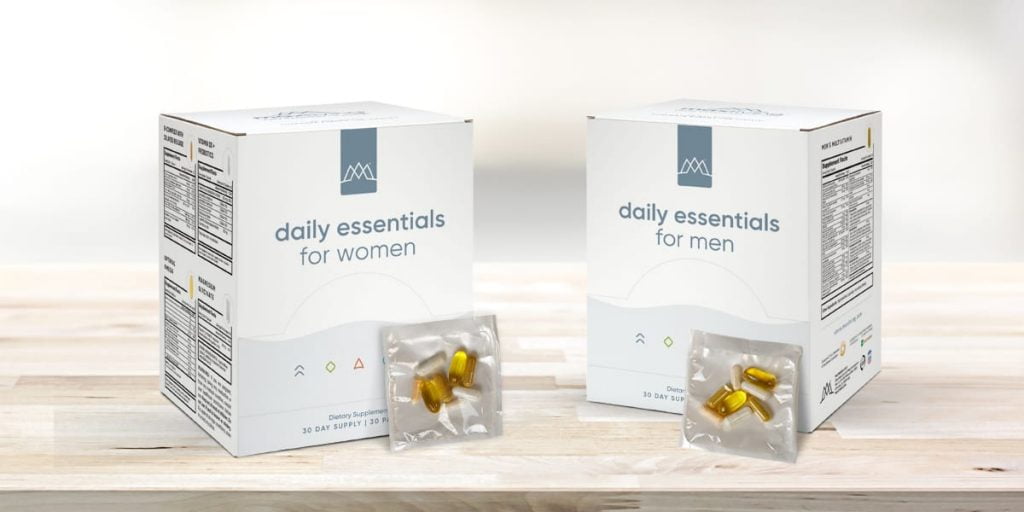- 4 Ways to Support Kidney Health
- How Your Kidneys Process What You Eat and Drink
- 7 More Ways to Protect Your Kidneys
Your two kidneys are shaped like beans. Each is about the size of your fist. Your kidneys are located below your rib cage, on each side of your spine.
Even though they’re small — each one weighs about five ounces — your kidneys work hard to keep you healthy.1
Every minute, your kidneys filter around a half cup of blood. Doing this removes waste and excess water, which you excrete as urine.2 Besides discarding waste and excess fluid, your kidneys:
- Remove acid that your cells produce
- Balance water, salts, and minerals so that nerves, muscles, and other tissues work well
- Make hormones that support blood pressure, red blood cells, and strong bones3
- Activate vitamin D for healthy bones and more4
Blood pressure and blood sugar can impact how your kidneys work. So can things you might not consider, such as gut health. If you’re not regularly eating plenty of cultured and fermented foods, our MaxLiving Probiotic 50B provides 10 strains of healthy gut flora in one easy-to-take capsule to support gut health, healthy kidneys, and much more.
When your kidneys work well, you probably don’t give these duties much thought. But kidney problems can create havoc throughout your entire body.
When your kidneys become damaged, they can’t perform these duties well. Numerous health problems contribute to unhealthy kidneys, but diabetes is the leading cause: About 44 percent of kidney disease, in fact, come from diabetes.
Over time, kidney disease can create weak bones, nerve damage, malnutrition, and other problems. Eventually, your kidneys stop working.5
Over one in 10 Americans over age 20 show signs of kidney disease. Some forms are progressive, and kidney disease gets worse over time.6
Chronic kidney disease is the most common form of kidney disease.7 This can create other problems, including heart disease, heart attacks and stroke, weak bones, nerve damage, kidney failure, and even death.8
Other types of kidney disease include:
- Kidney stones
- Urinary tract infections
- Polycystic kidney disease
- Inflammation of the glomeruli, located within your kidneys, which filter blood9
Early warning signs of kidney disease vary. They include fatigue, trouble sleeping, problems concentrating, and urinating frequently at night. Those symptoms aren’t always obvious. Unfortunately, kidney disease can easily go unnoticed until the symptoms become severe.10
That’s why working with your healthcare practitioner and early testing are critical. Measuring your blood pressure and with a few lab tests can determine whether you have chronic kidney disease.11
Certain factors can increase your risk of chronic kidney disease, including:
- A history of diabetes, heart disease, kidney disease, and/ or high blood pressure
- If you’re over 60
- Certain ethnicities, including African-Americans and Native Americans
4 Ways to Support Kidney Health
You can’t control genetics, your ethnicity, or your age. Even so, chronic kidney disease is highly preventable.12 Talk with your healthcare practitioner about these four factors to keep your kidneys in peak form.
- Blood pressure. Your kidneys constantly process blood. In fact, your kidneys process about 20 percent of your total blood volume. High blood pressure can put added stress on your kidneys. Over time, added pressure means that your kidneys lose their ability to function.13
- Blood sugar.When you’re healthy, your cells can utilize sugar for energy. But too much sugar can make those cells resistant, so more of that sugar remains in your bloodstream. As a result, your kidneys have to work extra hard to filter blood.14 Over time, that added pressure can damage your kidneys.
- Gut health. An unhealthy gut — when the number of bad bacteria overpower the good bacteria — can damage your gut wall and create a leaky gut.15 When your gut becomes leaky, toxins can slip through the gut wall and enter your blood. That increases pressure in your kidneys, contributing to inflammation and other problems.16
- A healthy weight. Obesity is a risk factor for chronic kidney disease.17 When you lose weight, you can prevent chronic kidney disease or slow its development.18 A healthy weight reduces your risk of diabetes, heart disease, and other problems that can put added stress on your kidneys.19
How Your Kidneys Process What You Eat and Drink
Being active and maintaining a health-conscious lifestyle are the best things you can do to keep your kidneys healthy.20 The most important thing you can do to avoid chronic kidney disease-related death and disabilities is what you put at the end of your fork.21
The right foods can help your kidneys work well and prevent them from damage.22 They help balance your blood sugar,23 for instance, and normalize your blood pressure.24
MaxLiving’s Core Plan provides a perfect foundation for kidney and overall health. This plan can help normalize blood pressure and blood sugar while helping you keep a healthy weight and supporting gut health. You’ll especially want to focus on these kidney-supporting foods.
- Wild-caught cold-water fish. The omega-3 fatty acids in fish can decrease inflammation. This chronic inflammation plays a role in kidney disease25 and nearly every other disease.
- Berries. Blueberries and other berries are nutrient superstars, packed with antioxidants that prevent diseases including diabetes.26 Cranberries, on the other hand, prevent bacteria from building up to prevent urinary tract infections.27
- Leafy and cruciferous greens. Spinach, broccoli, and other vegetables are packed with vitamins, minerals, antioxidants, and fiber to help support healthy blood pressure28 and blood sugar levels.29
- Foods rich in probiotics. Fermented and cultured foods contain probiotics, the good bacteria that helps support a healthy gut — and by extension, healthy kidneys. Probiotic-rich foods include kefir, sauerkraut, miso, tempeh, and kimchi.30
- Green tea. Epigallocatechin-3-gallate (EGCG), the active compound in green tea extract, is a powerful antioxidant to support kidney health and prevent chronic kidney disease.31
Our Core Plan includes these and other nutrient-dense foods to keep your kidneys healthy. If you have targeted nutrition goals, such as lowering inflammation levels, consider our Advanced Plan.
7 More Ways to Protect Your Kidneys
What you eat matters, but you can support kidney health in other ways. How you move and live can make a big impact on your blood pressure, blood sugar, and other factors to protect your kidneys.
Along with our Core or Advanced Plans, these seven strategies can optimize kidney health.
- Drink plenty of water. Staying hydrated helps your kidneys remove waste and work efficiently. Water also helps dilute your urine to prevent the crystals that can lead to kidney stones.32 Keep a canteen filled with clean, filtered water and drink liberally throughout the day.
- Quit smoking and drink alcohol in moderation (if you do at all).33 Smoking impacts blood flow to your kidneys and other organs.34 If you smoke, talk with your healthcare practitioner about ways to quit. If you drink, stick with one drink a day for women or two for men.35
- Manage stress. Feeling constantly stressed can raise your blood pressure and blood sugar levels, increasing pressure on your kidneys.36 How you manage stress depends on what works for you. That might include yoga, meditation, deep breathing, or walking your dog around the block.
- Stay active. Regular exercise can lower your risk of chronic kidney disease, keep a healthy weight, support healthy blood pressure, and prevent diabetes and other diseases.37 Aim for at least 150 minutes of moderate aerobic activity, 75 minutes of vigorous aerobic activity, or a combination of both, divided up throughout your week.38 Try our MaxT3 exercise plan, for an effective workout in just 12 minutes!

- Make sleep a priority. Researchers find that poor sleep can worsen chronic kidney disease.39 Quality sleep, on the other hand, can support hormone balance, blood pressure, and blood sugar. All of those things benefit kidney function. Aim for eight hours of quality, uninterrupted sleep every night, and consider a supplement if you have trouble falling or staying asleep.

- Get the right nutrients. Even with the healthiest diet, you might not get optimal amounts of nutrients to support kidney and overall health. That’s where our Daily Essential Packets (for men or women) can help. Each packet contains all the nutrients you need to thrive, including omega-3 fatty acids to reduce inflammation.40 With the nutrients found in these convenient packets, you balance blood sugar, normalize blood pressure, and keep your body running at peak performance.

- Support gut health. A healthy gut helps keep your kidneys healthy. That’s where probiotics can help. These good gut bugs help maintain a healthy gut. The right gut balance can create a healthy gut, prevent gut-related problems like leaky gut, and slow down chronic kidney disease.41 Most of us don’t eat enough cultured and fermented foods, which are high in probiotics. That’s why we created MaxLiving Probiotic 50B, a highly potent supplement with 10 top probiotic strains. With delayed release technology and the highest manufacturing standards, MaxLiving Probiotic 50B is the most powerful probiotic on the market to support gut, kidney, and overall health.

With these strategies, you have everything you need to support kidney health. Additionally, you’ll want to get regular physicals including lab screenings and monitor your blood pressure regularly.
You’ll also want to address any specific concerns with your healthcare practitioner, including any medications that might impact kidney health. Ask him or her about regular kidney function tests, especially if you have higher risk factors for kidney problems.
References
- https://mcb.berkeley.edu/courses/mcb135e/kidneys.html
- https://www.niddk.nih.gov/health-information/kidney-disease/kidneys-how-they-work
- https://www.niddk.nih.gov/health-information/kidney-disease/kidneys-how-they-work
- https://www.kidney.org/atoz/content/sixstepshealthprimer
- https://www.healthline.com/health/kidney-disease
- https://www.healthline.com/health/kidney-health
- https://www.healthline.com/health/kidney-health
- https://www.kidney.org/atoz/content/sixstepshealthprimer
- https://www.healthline.com/health/kidney-disease#types-and-causes
- https://www.healthline.com/health/kidney-disease#risk-factors
- https://www.kidney.org/atoz/content/sixstepshealthprimer
- https://www.ncbi.nlm.nih.gov/pmc/articles/PMC5433675/
- https://www.healthline.com/health/kidney-health
- https://www.healthline.com/health/kidney-health
- https://www.karger.com/Article/Fulltext/494677
- https://www.karger.com/Article/Fulltext/494677
- https://www.kidney.org/atoz/content/sixstepshealthprimer
- https://www.ncbi.nlm.nih.gov/pmc/articles/PMC5433675/
- https://www.healthline.com/health/kidney-health
- https://www.healthline.com/health/kidney-health
- https://www.medicalnewstoday.com/articles/325390
- https://www.medicalnewstoday.com/articles/325390
- https://www.healthline.com/health/kidney-health
- https://www.healthline.com/health/kidney-health
- https://www.sciencedaily.com/releases/2007/04/070430094018.htm
- https://www.healthline.com/nutrition/best-foods-for-kidneys#4
- https://www.healthline.com/nutrition/best-foods-for-kidneys#19
- https://www.medicalnewstoday.com/articles/322284#fifteen-foods-that-help-to-lower-blood-pressure
- https://www.medicalnewstoday.com/articles/317225
- https://www.health.harvard.edu/staying-healthy/how-to-get-more-probiotics
- https://www.ncbi.nlm.nih.gov/pmc/articles/PMC5290885/
- https://www.niddk.nih.gov/health-information/kidney-disease/chronic-kidney-disease-ckd/prevention
- https://www.kidney.org/atoz/content/sixstepshealthprimer
- https://www.webmd.com/a-to-z-guides/keep-kidneys-healthy#2
- https://www.webmd.com/a-to-z-guides/keep-kidneys-healthy#1
- https://www.kidney.org/atoz/content/Stress_and_your_Kidneys
- https://www.kidney.org/atoz/content/exercisewyska
- https://www.mayoclinic.org/healthy-lifestyle/fitness/expert-answers/exercise/faq-20057916
- https://www.kidney.org/professionals/studying-sleeps-impact-kidney-health
- https://www.sciencedaily.com/releases/2007/04/070430094018.htm
- https://www.karger.com/Article/Fulltext/494677
- https://www.healthline.com/health/kidney-health



